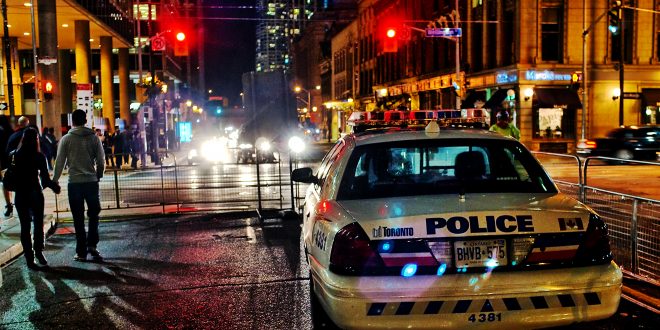From interactions with hostile suspects and emotionally distraught victims, to a heavy workload and interference with family life, the demands that police face can negatively affect their mental wellbeing.
Increasing police officers’ ability to successfully cope with stress may be one strategy for improving their mental health and preventing the onset of future mental health concerns. The Road to Mental Readiness (R2MR) program is an educational program originally designed by the Canadian military to increase mental health resilience. R2MR provides participants with education about mental health and stress, as well as several therapeutic stress management skills (e.g., goal setting, tactical breathing, awareness of self-talk, mental rehearsal/visualization). Although the Mental Health Commission of Canada (MHCC) has adapted a version of the military’s R2MR program for municipal police, published research on the outcomes of using R2MR with police have remained very rare.
The current study was designed to evaluate the effects of a single session of R2MR training on municipal police mental health, work engagement, resiliency, mental health knowledge, and stigma. Participants in this study were 147 Canadian police agency employees who received R2MR training. The participants completed secure online self-report surveys before and after their R2MR training session, as well as 6- and 12-months later. The self-report surveys also provided participants with the option to anonymously share their personal thoughts on the R2MR program.
According to the study results, a single session of R2MR training did not lead to statistically significant changes in participants’ mental health, work engagement, resiliency, or mental health knowledge; however, participants did report small reductions in mental health stigma. Additionally, when asked to share their thoughts on R2MR, participants described the training as helpful, particularly for changing attitudes and improving mental health communication. The current results suggest that R2MR training might help participants feel more comfortable seeking help with their mental health; however, more research is needed to understand whether that increase added comfort produces measurable changes in behaviour following R2MR, such as increased health service use and therein improved mental health, work engagement, or resiliency.
Despite the current results being mixed with respect to some of the outcomes from R2MR training, leaders may choose to believe any reductions in stigma to be worthwhile and may choose to believe that trainees’ positive perceptions of R2MR regarding attitude change and communication justify any associated investment. Leaders should also consider the possibility that, in line with expectations for most training, more than one session of R2MR training, or regular refresher courses, may be needed to produce substantial changes in targeted outcomes. In any case, more research is needed to assess the effects of incorporating R2MR training, particularly repeated sessions of R2MR, into police agency training. More research is also needed to evaluate the impact of different training organizations (e.g., training by MHCC relative to training by the Canadian military) and different versions of the R2MR program.
Read the full paper: Carleton, R. N., Korol, S., Mason, J. E., Hozempa, K., Anderson, G. S., et al. (in press). A longitudinal assessment of the road to mental readiness training among municipal police. Cognitive Behaviour Therapy. doi:10.1080/16506073.2018.1475504



Photo by: Richard Minton
 Cognitive Behaviour Therapy A peer reviewed, multidisciplinary journal devoted to the application of behavioural and cognitive sciences to clinical psychology and psychotherapy.
Cognitive Behaviour Therapy A peer reviewed, multidisciplinary journal devoted to the application of behavioural and cognitive sciences to clinical psychology and psychotherapy.




